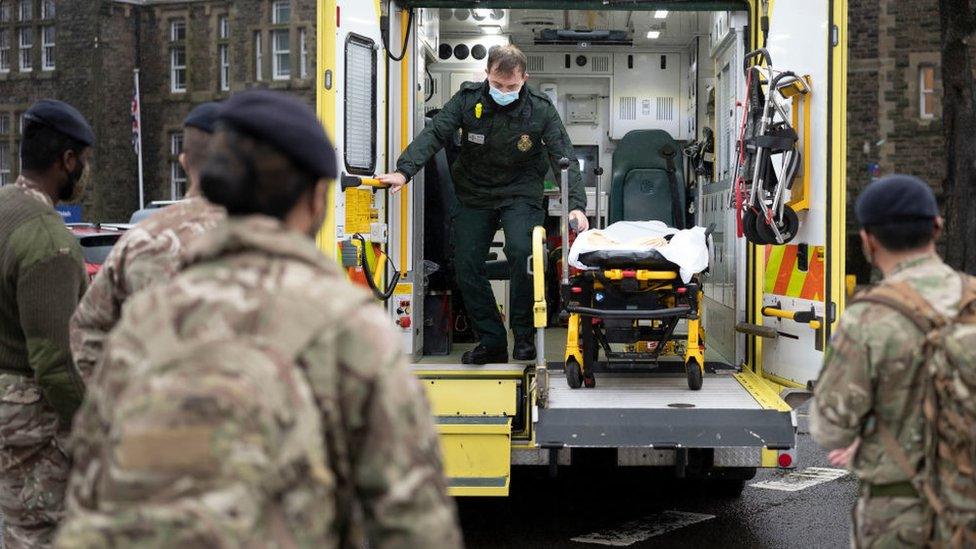NHS: Wales' hospital treatment time longest in UK - study
- Published
Patients sometimes have to wait in ambulances for 13 hours before they can be seen in hospital
Treatment time of patients in hospitals is more than 60% longer in Wales than England, a BBC investigation has found.
Data shows patients are staying in Welsh hospitals for an average of seven days, the longest in any UK nation.
The Nuffield Trust said this plus long waits for planned treatment and surgery meant many patients were "missing out on care they should expect".
The boss of the Welsh NHS said the service was under "enormous pressures".
"Every day hundreds, if not thousands, have good care from the NHS. I don't accept that we're in a crisis situation," said Welsh NHS Chief Executive Judith Paget.
Over the last 10 years the average length of a hospital stay - seen as a key measure for health service efficiency - in England has dropped to just over four days, research from independent healthcare research charity The Nuffield Trust has found.
In Wales that average stay is seven days, with research showing the gap between Wales and England's average has widened.
'Massive difference to running of NHS'
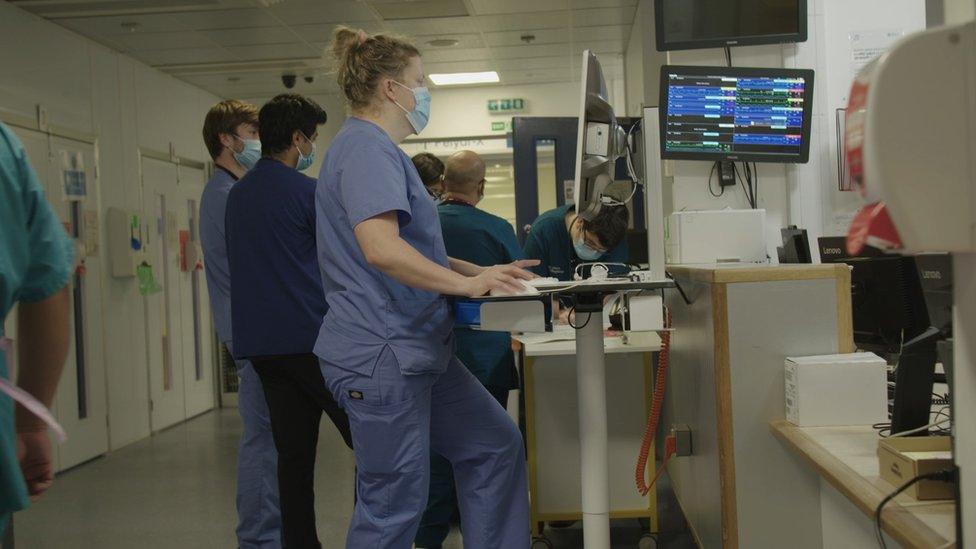
Staff at Wrexham Maelor Hospital say they are constantly working to find space and appropriate care for patients
Mark Dayan, of The Nuffield Trust, told BBC Wales Investigates how long patients were being treated in hospital was key to the running of the NHS as it "determines how many patients you can get through".
"That means that despite having more nurses and despite having more beds, it is not seeing the same increase in its ability to treat more patients," he said.
"There hasn't been much improvement in Wales over the last decade either.
"So I think we need to look seriously into the possibility that Wales is simply not succeeding in treating patients safely at the speed they could be treated at in England."
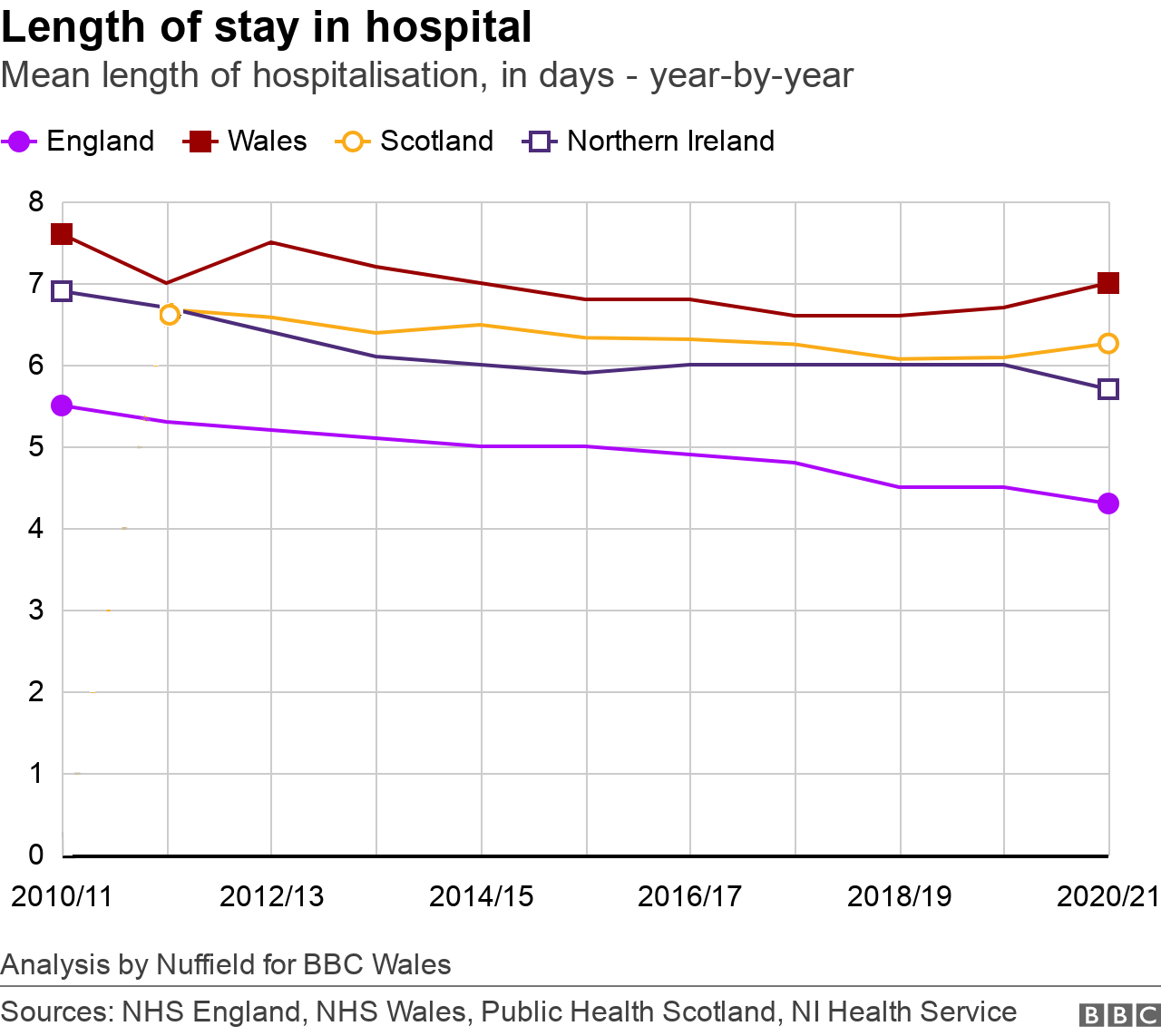

Mr Dayan said he was "not convinced" the reason for the stays was because Wales was an older and sicker nation.
"When you compare Wales to not only England but to Scotland and Northern Ireland, both of which have high need for healthcare - possibly higher than Wales," he said.
"But both of those nations have shorter average length of stays in hospital than Wales."
Hospital waiting times growing
As well as time needed for hospital treatment, the gap between average waiting times for referral to treatment in Wales and England has widened too.
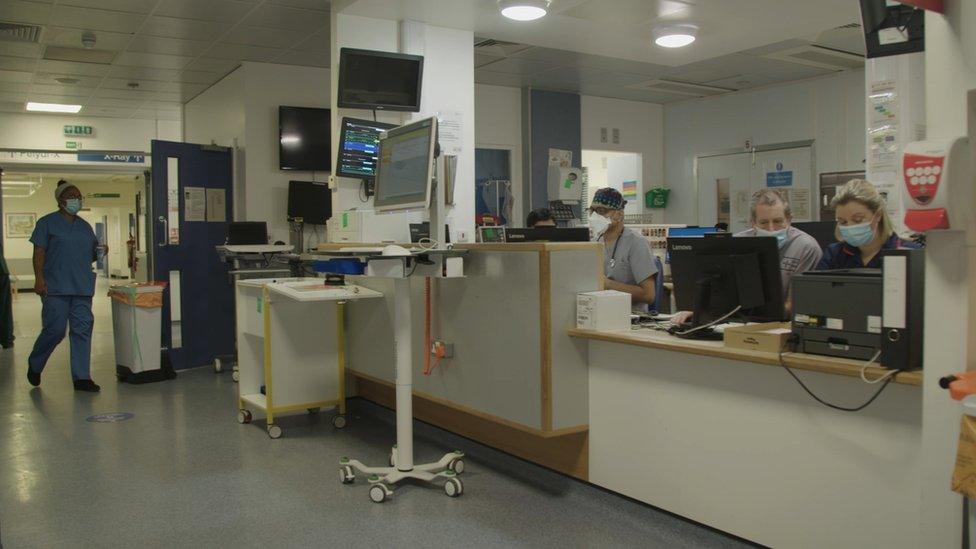
Hospital staff told the BBC they are working tirelessly to get patients beds in hospitals and the appropriate care
While it was 11 weeks in Wales compared to eight in England before Covid, it is now 24 weeks in Wales and 13 in England on average.
"If you need planned care, you're likely to wait twice as long for it as you would in England," Mr Dayan said.
"And that's twice as long as a waiting time that isn't really acceptable in England to start with - it's missing all of the targets there.
"Patients in Wales are really missing out on care that they should expect to be getting."
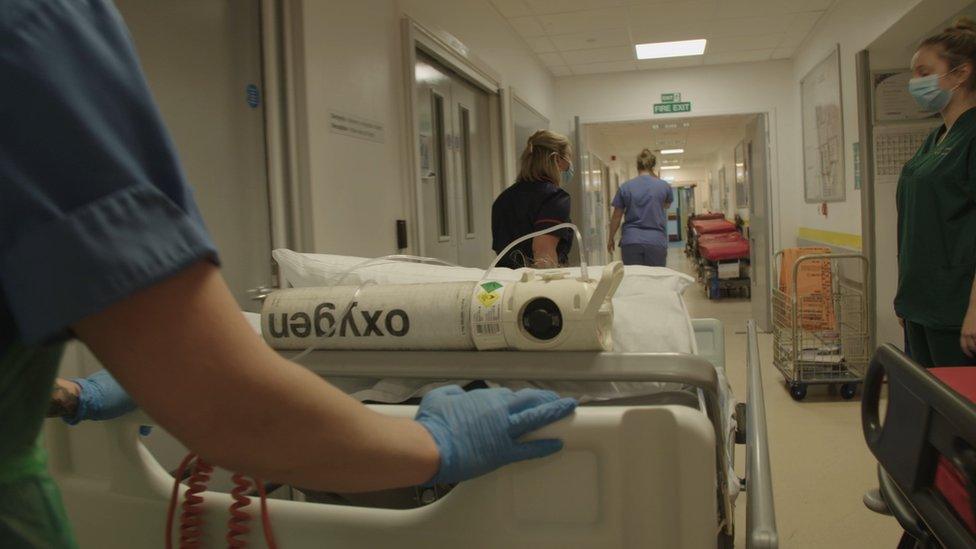
A BBC investigations team was given access to Wales' largest health board to understand the pressures that Welsh NHS staff are facing
The 95% Welsh target for patients being seen and treated within four hours at A&E has never been met - and is getting worse.
And last month, it was revealed A&E and ambulance waiting times in Wales were close to their worst on record.
The Nuffield Trust's warning comes as BBC Wales Investigates followed frontline staff at Wales' largest health board last winter to see the pressures and how staff struggled to cope with demands of a system some feel is failing under intense strain.
Twelve hour wait outside hospital in ambulance
The team met Catherine Magliocco who had to wait more than 12 hours in an ambulance outside her local A&E in north Wales after being taken to hospital complaining of chest pains.
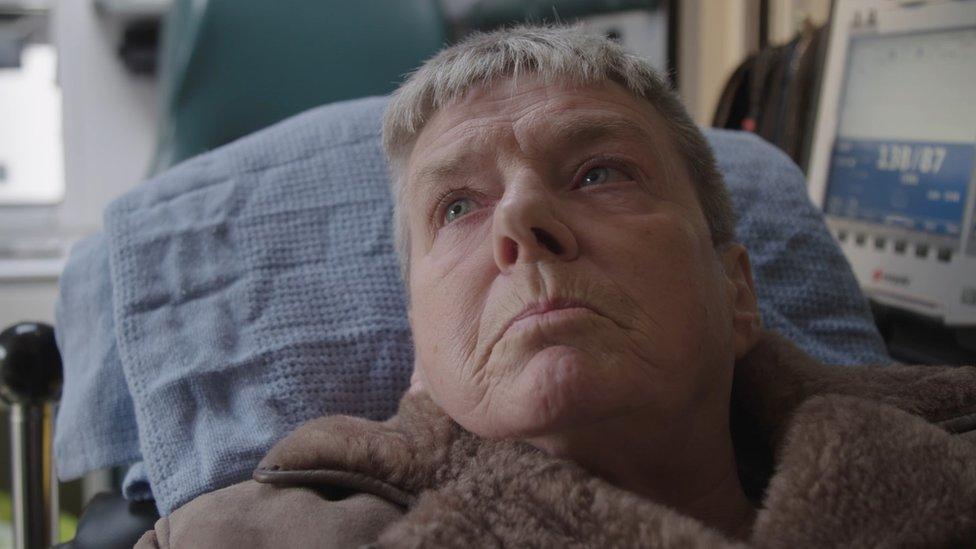
An ambulance was called for Catherine Magliocco because she was suffering with chest pains
The lack of capacity at Wrexham's Maelor Hospital meant they did not have the space to treat her so she had to wait in the back of an ambulance.
Catherine was eventually wheeled into a treatment room for an initial triage assessment.
But while waiting for a doctor to give her a check-up, Catherine and other patients were considered stable enough to go back into the ambulance again as the A&E was full.
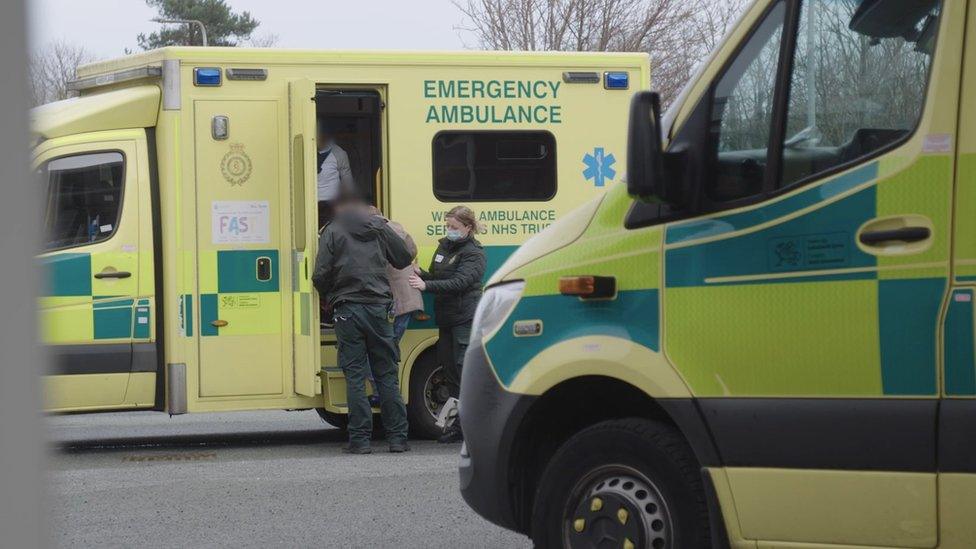
Catherine Magliocco was one of a few patients that day in Wrexham that had to get back into an ambulance and wait
"There's obviously a lot of work to do with other people," Catherine said. "So you just have to wait unfortunately."
Accident and emergency waiting times at Wrexham Maelor have been among the worst in Wales, with the latest figures for April 2022 showing less than 40% of patients waited four hours or less - compared to the Welsh average of just over 65%.
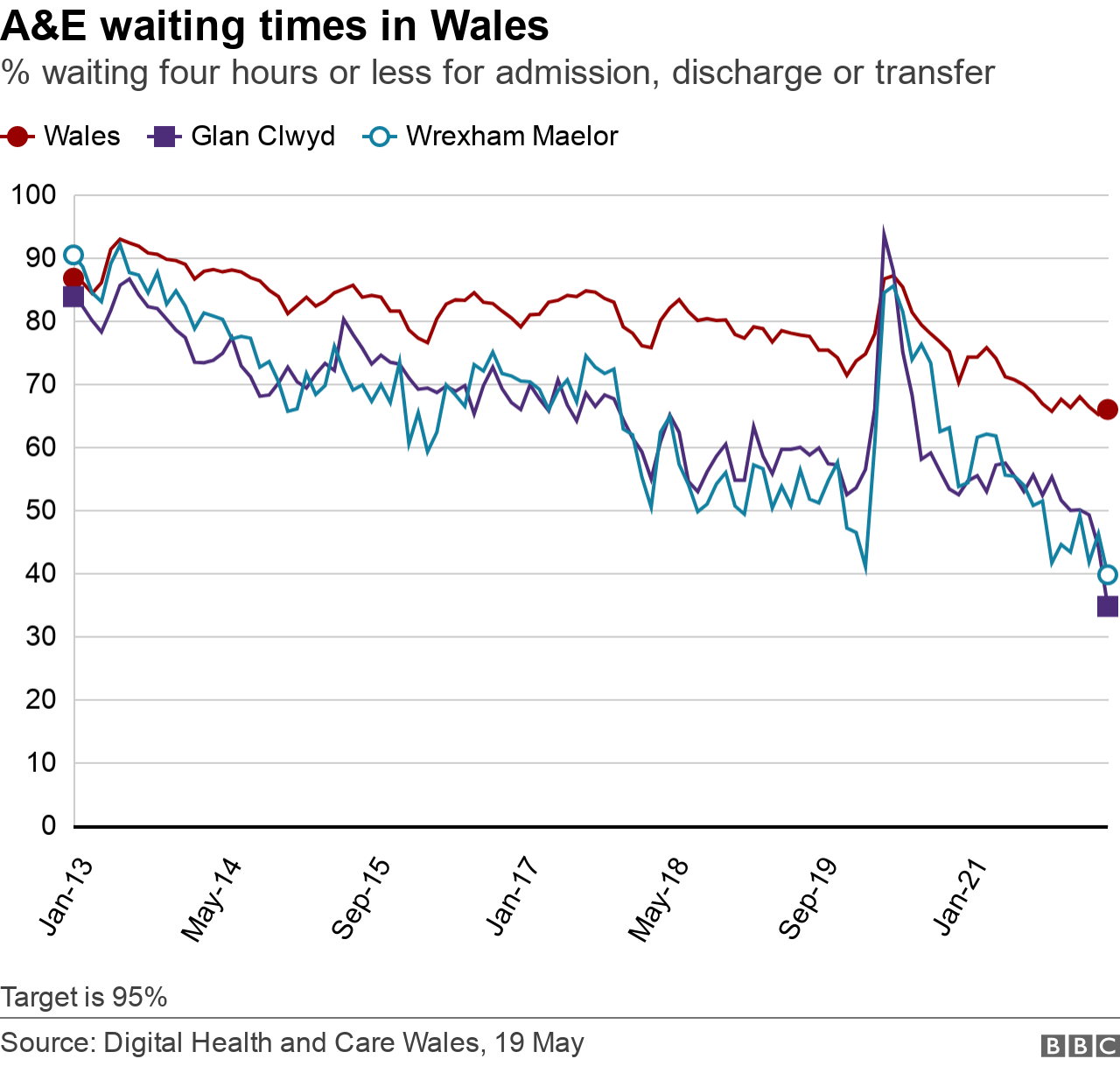

Lindsey Bloor, the hospital's A&E manager, said she had to apologise to patients for long waits on a regular basis, but said staff could not do any more to ease pressures, and were a "victim of the system".
"For me having someone outside on an ambulance for nine hours is very uncomfortable," she said.
"Often we will have a plan to bring the longest person in, but then someone will come into the waiting room with chest pains, for example, and is clinically more urgent than a patient that is stable on the back of an ambulance."
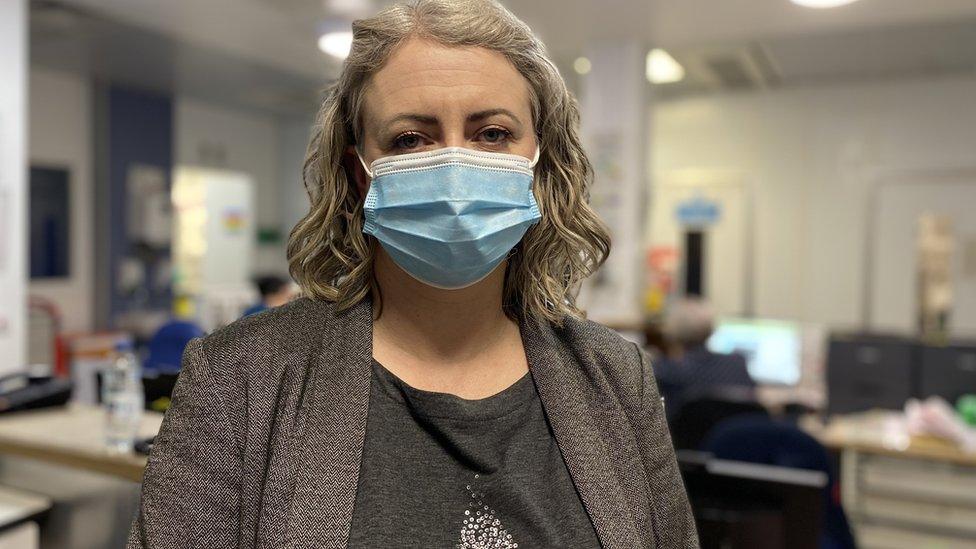
Wrexham A&E unit manager Lindsey Bloor said her department were "falling short" but said they were a "victim of the system"
The demands to find room and appropriate care for patients at Betsi Cadwaladr Health Board (BCUHB) are typical across the country - although the health board that covers north Wales has just avoided being put back into special measures.
A shortage of social care workers in the community, have been blamed for causing so-called bed blocking - where patients who are medically well enough to be discharged from hospital wards cannot be sent home or to care in the community.
'We can't use Covid as an excuse'
Mr Dayan said the research should act as a warning of the challenges facing the Welsh NHS and how they can learn lessons from other health services across the UK.
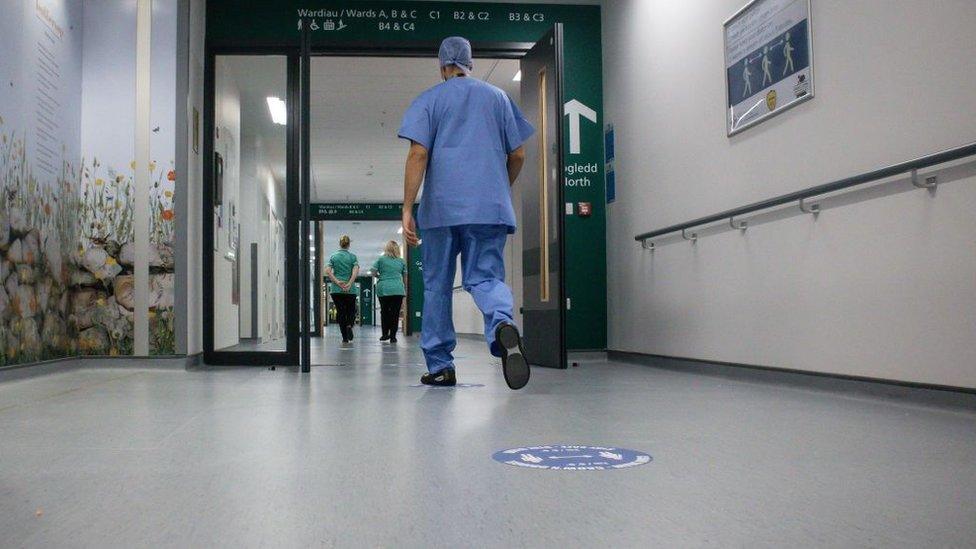
Despite having more beds and more nurses, the Nuffield Trust research found Wales has less consultants per head of population than England
There are big challenges for those running Wales' health boards and BCUHB medical director Nick Lyons said there had been "unacceptable occurrences" of people waiting too long to be seen.
"It's a huge issue," he said.
"The numbers are high and are much higher than I'd be comfortable with and any of us are comfortable with.
"We've got to be careful to not use Covid as an excuse. Covid has contributed to the exhaustion of our staff and to some of the pressures and the late presentation of patients.
"But there have been times when we haven't been in a place we should be in."
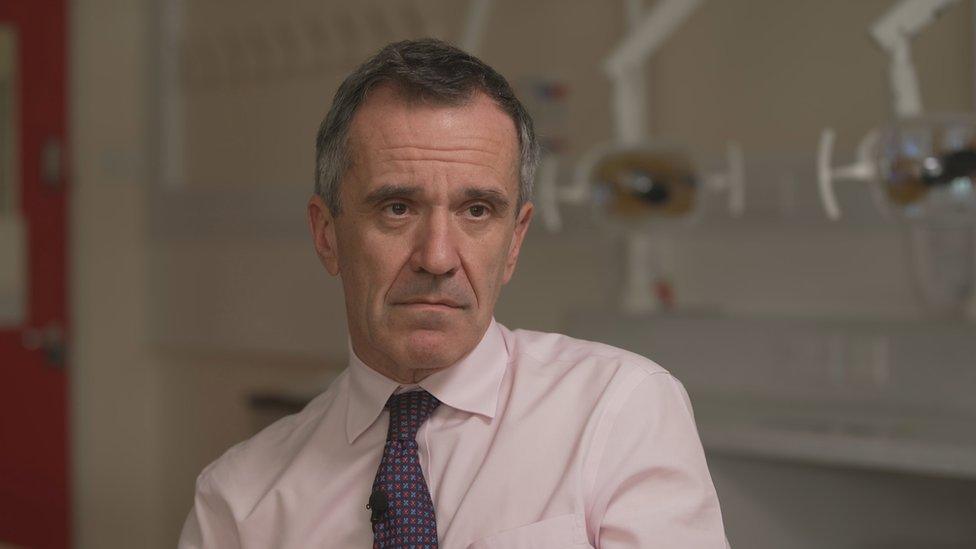
Betsi Cadwaladr medical director Nick Lyons said he was worried about the pressures on his staff
Although Wales has more nurses and beds per head of population than England, the Nuffield Trust research also said Wales had fewer consultants.
'In tears due to pressure'
Earlier this week a study by The Royal College of Nursing (RCN) claimed that more than half of Wales' nurses are demoralised due to a staffing crisis, with NHS Wales having an estimated 1,700 nursing vacancies.
Staff told BBC Wales Investigates that colleagues had been "in tears due to the pressure and workload" - and retaining and attracting staff is a concern to health board bosses.
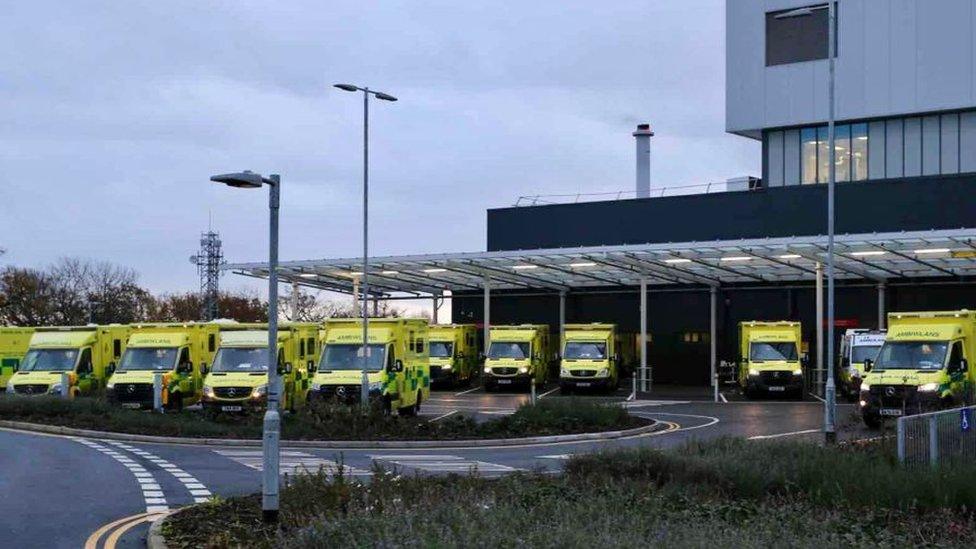
Patients who cannot be admitted to A&E remain in ambulances until space can be found
"I do worry there will be people who are exhausted," added Mr Lyons.
"Staff who now may now be looking at their pension to see it would allow them to retire early - and that will potentially prove challenging for us because there is a backlog of work."
'We need to speed up NHS changes'
Ms Paget said the issue of hospital treatment time was "hugely complex" and that England and Wales were "very different".
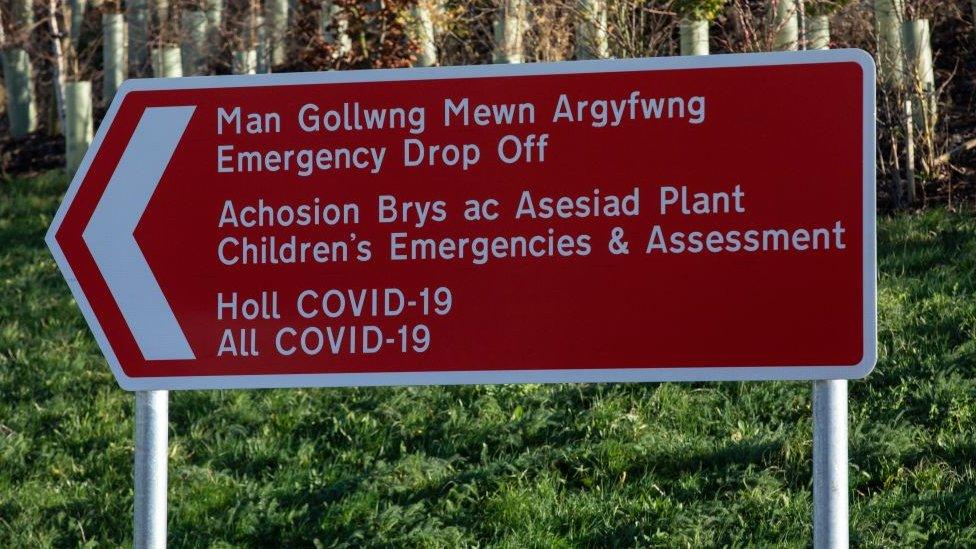
The 95% Welsh target for patients being seen and treated within four hours at A&E departments has never been met
"I recognise we need to speed up some of the changes that we've got in place," she said.
"We've had resources made available by Welsh government to do so and I and everybody who works in the NHS will be trying to escalate those responses as we go forward.
"It is a hugely complex system....that's not something the NHS can do on its own."
For more on this story, watch BBC Wales Investigates on BBC One Wales on Thursday at 21:00 BST or catch-up afterwards on BBC iPlayer
- Published7 June 2022
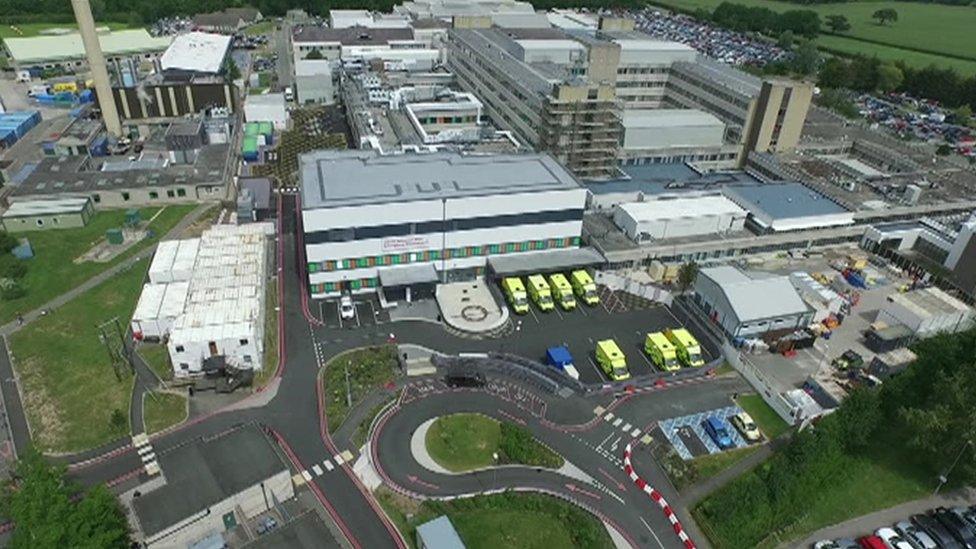
- Published6 June 2022

- Published19 May 2022

- Published21 November 2021

- Published30 July 2021

- Published4 January 2022
